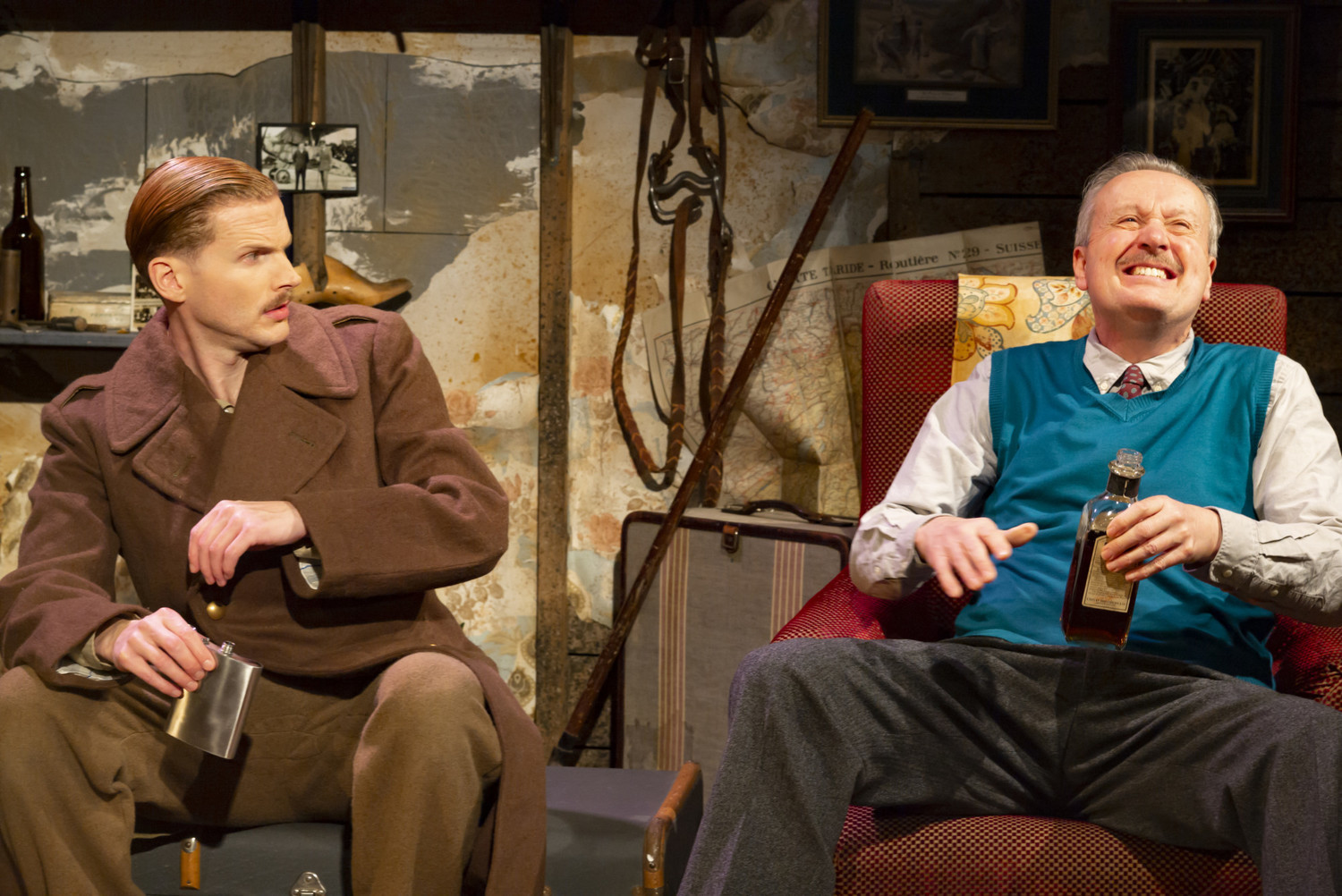Review: BILLY BISHOP GOES TO WAR, Southwark Playhouse

![]() An upright piano, a bottle of something strong, a door leading somewhere else. Billy Bishop Goes to War, on now at the Southwark Playhouse, after transferring from the Jermyn Street Theatre, is evocative and wistful, like a tune you remember from your youth, but no one else does.
An upright piano, a bottle of something strong, a door leading somewhere else. Billy Bishop Goes to War, on now at the Southwark Playhouse, after transferring from the Jermyn Street Theatre, is evocative and wistful, like a tune you remember from your youth, but no one else does.
Billy Bishop - there was an actual Billy Bishop - was an unlikely hero of the First World War. Born and raised in Canada, he joined the war effort early on, but did not fly a plane behind enemy lines until 1917. Somehow, despite little training, and a less-than-heroic attitude, Bishop became the Allies' greatest fighter pilot, taking down German planes by the dozens.
There may have been an actual Billy Bishop, but Billy Bishop Goes to War is not so much an historical show as it is a piece of imagined memory. Narrated more than enacted, it is one man's reflections on his life, especially the years spent at war. Bishop, like most people, is ambivalent towards his past; he has good memories and bad ones, clear, vivid pictures, and hazy months and years that slip together.
At the Southwark, Bishop is represented by two actors: Charles Aitken, who is young and spry, and Oliver Beamish, grey-haired and resplendent in a sweater vest. Beyond the two phases of Bishop's life they're meant to represent, they also portray, between the two of them, a dozen or so colourful supporting characters, including mechanics, captains and aristocrats.
Aitken and Beamish are both dramatically convincing and utterly charming. There is a surprising amount of humour in the story in they tell; surprising because, by the reckoning of most, shooting down planes and fighting in a war is not a fun story to tell. But this is Bishop's version of events, remember. We are just visitors in his memory.
The cluttered space of Bishop's memory comes to life in Daisy Blower's clever and eclectic set. Photographs, bottles, clothes, and knick-knacks radiate a sense of hominess, a personality. Bishop may have been a hero to some, but he saw himself as an ordinary man who loved to fly.
And sing, apparently. I wouldn't describe Billy Bishop Goes to War as a musical - there is relatively little singing, and no orchestra, and - maybe more importantly - none of the glamour and style that the word 'musical' brings to mind. There is the occasional ragtime ditty, a few tunes here and there, but they remind me less of the Phantom of the Opera and more of my grandfather humming on an armchair, when he visits the world he used to live in, a place I've never known.
And that's the power of Billy Bishop Goes to War. It is not history, but one man's story, powerfully evoked, through the music in his mind, through the stories he tells. It is the feeling of being inside of someone else's heart, and understanding what made him laugh, and what hurt him; and laughing and hurting alongside him.
Billy Bishop Goes to War at the Southwark Playhouse until 6 April.
Photo credit: Nick Rutter
Reader Reviews

Videos

